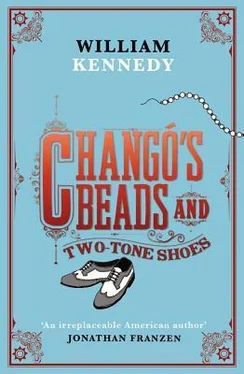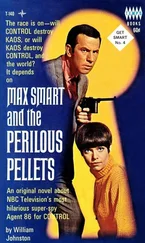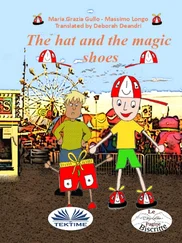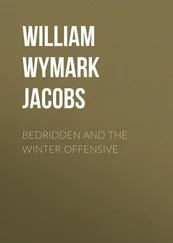In the film Julian played a character named Blink, unreliable, a drinker, not bright, ousted from a radical Black Power organization. Angry over the rejection, Blink betrays his friend, the organization’s leader, to the police for money — Judas in a black Chicago ghetto in 1967. Julian acted it well and his story reflected the deadly tension Black Power was now generating in America’s big cities. Quinn saw the film with an audience of a thousand, mostly black. Every time a black revolutionary dissed or shot a white man a cheer went up, and a cry of “black power.” When a black went down the call was “white power,” but not so many voices. Quinn hadn’t known Max was in the film, playing a detective. Obviously Max had kept his connection to Julian after Havana, but he’d been on the showbiz fringe since his Bing days. Max the spy, the editor, the actor, the criminal, the ongoing son of a bitch.

Quinn sat on the aisle in the third row of chairs set up in the First Church’s basement. He heard Claudia’s voice and turned to greet her. She was enormous in a starched pink and white vertical-striped, short-sleeved cotton housedress to her ankles, her hair rolled in thick waves, and Quinn thought her flamboyantly lovely. She took his hand and shook her head at this mess, it never ends, then sat in a chair to the rear of the dais, staring into the crowd, her small smile missing, her lips moving in a silent whisper.
The protest had been conceived by Baron Roland to mount grievances against landlords and police — black youths beaten and jailed as gangs, the Brothers harassed, social agencies punished for helping groups like Claudia’s, riots elsewhere bringing change from City Hall, but not here. Then Matt was silenced and Bobby shot, and Claudia marshaled her troops to raise hell — and here they came — three hundred in a room for two hundred. Three TV stations and both newspapers here to cover it.
Penny, who this afternoon predicted a disaster to Matt, was sitting with a young black man Quinn didn’t know, both talking with Roland who looked roosterish with a forum this large. Quinn counted at least two spies from the Albany machine, plus half a dozen white and black clerics, two Franciscan priests and a cluster of students from Siena supporting Matt, the campus hero, and three College of Saint Rose nuns who supported everything Claudia did, and Father Howard Hubbard, just out of the seminary and grad school, working out of Holy Cross with the neighborhood groups, including Claudia’s. Quinn saw a sizeable number of white first-timers he assumed were Catholics outraged over diocesan toadying to City Hall. Half the crowd was black, mostly women from seven neighborhood groups like Claudia’s, for whom this was a major moment, and — can it be, just inside the door, Tremont, is that you?
Baron Roland spoke first, how great so many are here to stand for Father Matt. Tomorrow morning we picket both the diocese and City Hall, please join us. He gave the latest word on Bobby and said he believed he was shot because he had become a spokesman for the black race, just as Martin Luther King was killed because he had become the black messiah. Women were weeping in Rio de Janeiro, Ralph Abernathy was leading prayers at the Poor People’s Campaign in Resurrection City, Willy Brandt had likened Bobby’s shooting to Greek tragedy, and the president of Chile said it has caused all men in the world to tremble. Roland asked for a silent prayer, then introduced Claudia, the outstanding leader of Better Streets, the group Father Matthew worked with. Claudia stood up so quickly her chair fell backward; but with fervid purpose she moved her great weight to the microphone, made her hands into fists and shook them.
“I’m mad, I’m ashamed, and I’m sorry,” she said.
“I’m sorry because when I asked the Mayor to come to the South End and see how bad things were he said he already knew, and I said I hope he chokes. I don’t mean that. When I said that the devil had a hold of me. I also said I’m goin’ up there and throw a brick through his window, but that was the devil again. I don’t wish no bad things for the Mayor. I gotta die myself. S’pose I died with that statement on me. I’d bust hell wide open.
“I’m mad ’cause they’re takin’ Father Matt away from us. They say he can’t come see us no more. When this man walk our streets it’s like he’s blessin’ ’em, like he’s blessin’ us all. He been down here a year helpin’ make those old houses somethin’ we can live in, roofs leakin’, rats runnin’, so cold in winter the water pipes bust. Kids sleigh-ride in the hall and tell their teachers they sleep in a room with diamonds, which is ice. You go out in the mornin’ and gangsters hustlin’ our kids to buy their junk. Wineheads sleepin’ on the street and you can’t leave no clothes on the line ’cause they steal everything.
“So I go to this meetin’ and they all talkin’ about getting organized and we say what we want to do and some of ’em laugh and say landlords won’t ever listen to you and you never gonna get no playground. But we knocked on doors and we got us some action and Father Matt was with us, chasin’ those fools away, gettin’ landlords to fix the pipes, tryna get a health clinic. He even walk into the Mayor’s office with us to get the garbage off our streets, which the city won’t do. But they don’t want him speakin’ up for us, the bishop don’t. Bishop say he gotta keep quiet what’s goin’ on in the South End. Father Matt knows everybody and everybody loves him and we don’t want him to go away. They took Martin Luther King and maybe they takin’ Bobby Kennedy and now our Father Matt who ain’t done nothin’ but good. That’s why I’m ashamed. But it’s the bishop oughta be ashamed, good holy man playin’ footsie with politicians. Father Matt bein’ punished for what he say about vote buyin’ and about the Mayor not doin’ nothin’, and they punishin’ us ’cause we tryin’ to make things better and they don’t want that. You stay where you are is what they’re tellin’ us. You live there and die there just the way it is. This ain’t any church talkin’ I ever know about.”
Father Thomas Tooher, a tall, fair-skinned man in his sixties, glasses, white hair, white collar, stood up from his seat in a middle row. Until two years ago he’d been pastor of a suburban parish with horseshows and celebrity parties if he needed money, but then he asked to be pastor of St. Joseph’s on Albany’s Arbor Hill, where he’d been raised when it was heavily Irish, but now was mostly black with a sparse congregation. “Mrs. Johnson,” he said, “I’d like to say a word about the bishop.”
Claudia nodded to him.
“The bishop didn’t silence Father Matthew Daugherty,” he said. “The bishop is a very sick man and hasn’t been in touch with diocesan business for months. He doesn’t know what happened on your streets that led to Father Matthew’s silencing. That order came from the diocese in his name, but it didn’t come from him. I say this now because I can’t bear to hear one more attack on this very good, very sick man.”
“If he didn’t do it, who did?” Claudia asked.
“I have nothing to say on that,” Father Tooher said, and he sat down.
A voice called out, “It was Callaghan,” and Quinn remembered Matt’s whorehouse list and Monsignor Callaghan, the diocesan chancellor, calling Matt a Republican troublemaker.
“It wasn’t the bishop?” Claudia said. “Just one of his flackeys? I know that bozo Callaghan, and he be the one sayin’ Father Matt gotta be punished for sassin’ the politicians? He be the one lettin’ politicians tell the church which is right and which is wrong?”
Читать дальше













